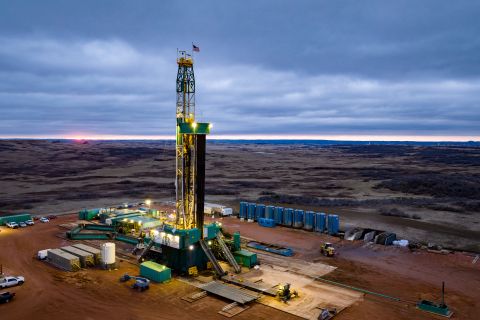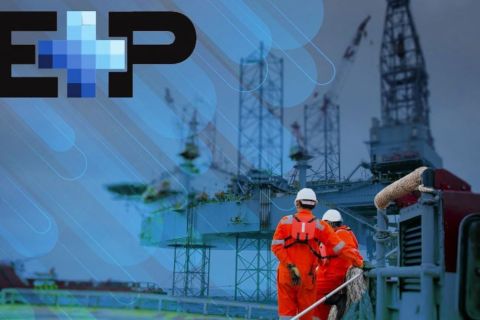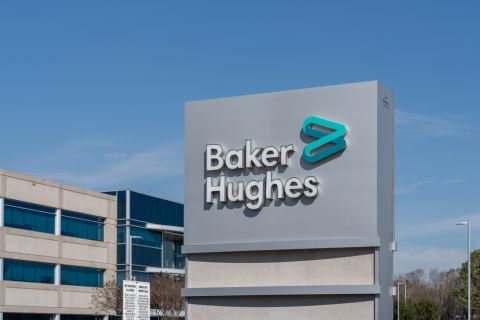Midstream Business readers are intimately familiar with the transportation of natural resources through pipelines. In the 1860s, the first crude oil pipeline was built in response to inadequacies in current methods. Since then, pipelines have become the most efficient, least expensive and least-intrusive method of transporting energy in North America.
Crude is priced based on quality and on location, and transportation methods often seek to take advantage of the pricing differentials. West Texas Intermediate (WTI) is the traditional benchmark for crude in the Midwest market, and Louisiana Light Sweet (LLS) reflects market economics in the Gulf Coast. Brent-pricing benchmarks European markets and often serves as a proxy for the worldwide cost of crude.
The oversupply of crude at the Cushing, Oklahoma, hub has driven WTI to significant discounts compared to LLS and Brent. Nearly all oil transportation in North America now focuses on moving oil priced at WTI to locations where it can be sold at LLS or Brent prices, capturing the spread. In the past few months, if a shipper could move crude between the Midwest (WTI) and any North American coast (LLS/Brent) for less than $20, that shipper profited handsomely.
The nation’s pipeline infrastructure doesn’t provide adequate takeaway from the shale plays, although master limited partnerships (MLPs) have already started to solve this problem. Formerly, rail transportation was used as a stopgap measure, but consistent pricing inefficiencies have paved the way for rail to play a much bigger role. A pipeline costs about $2- to $3-million per mile to build, but U.S. rail infrastructure has been built out for decades. Additionally, building a new pipeline requires a significant amount of permitting. WTI trades at such a deep discount to LLS and Brent due to the current surge in crude production without a corresponding increase in takeaway capacity. The Seaway Pipeline expansion, a joint venture between Enterprise Products Partners and Enbridge, provides new takeaway opportunities from Cushing to the Gulf Coast and was fully contracted even before completion at year end. Even trucking companies are operating at full capacity. This limited takeaway capacity prevents the price differentials between WTI and LLS/Brent from collapsing.
This dynamic benefits a number of MLPs, but ONEOK Partners LP withdrew plans to build a pipeline from the Bakken to Cushing. ONEOK did not receive enough long-term contracted interest, as producers preferred to pay a premium for the flexibility rail provides. Moving energy by rail is two-to-three times as expensive as pipeline, but it’s growing more popular by the day.
MLPs may not own tracks, but they’re participating in just about every other part of the business. Global Partners LP recently contracted with Phillips 66 Co. to deliver crude from the Bakken to Phillips’ New Jersey terminal. Phillips praised Global’s ability to use their rail assets and Northeast footprint to create a reliable “virtual pipeline.” Another MLP, Inergy Midstream LP, recently acquired a rail facility located in the heart of the Bakken shale-producing area.
Plains All American Pipeline LP participates the most actively in the rail space. After a December acquisition of rail terminals in the Eagle Ford, Bakken and Niobrara, it will have five loading terminals in producing areas ranging from the Rockies to South Texas. Plains also operates rail facilities that transport natural gas liquids through the U.S. and Canada. Future plans include spending $1 billion on rail projects.
Recommended Reading
Smart Tech Moves to the Hazardous Frontlines of Drilling
2024-10-08 - In the quest for efficiency and safety, companies such as Caterpillar are harnessing smart technology on drilling rigs to create a suite of technology that can interface old and new equipment.
E&P Highlights: Sept. 23, 2024
2024-09-23 - Here's a roundup of the latest E&P headlines, including Turkey receiving its first floating LNG platform and a partnership between SLB and Aramco.
Integrating OCTG Management from Planning to Well
2024-12-10 - Tenaris’ Rig Direct provides improved collaboration and communication, and more uptime.
Baker Hughes Defies Nature with an Upgrade to Ol’ Fashioned Cement
2024-10-15 - Baker Hughes’ InvictaSet uses regenerative capabilities to provide operators with a sustainable cement solution that can last for years.
Comments
Add new comment
This conversation is moderated according to Hart Energy community rules. Please read the rules before joining the discussion. If you’re experiencing any technical problems, please contact our customer care team.




